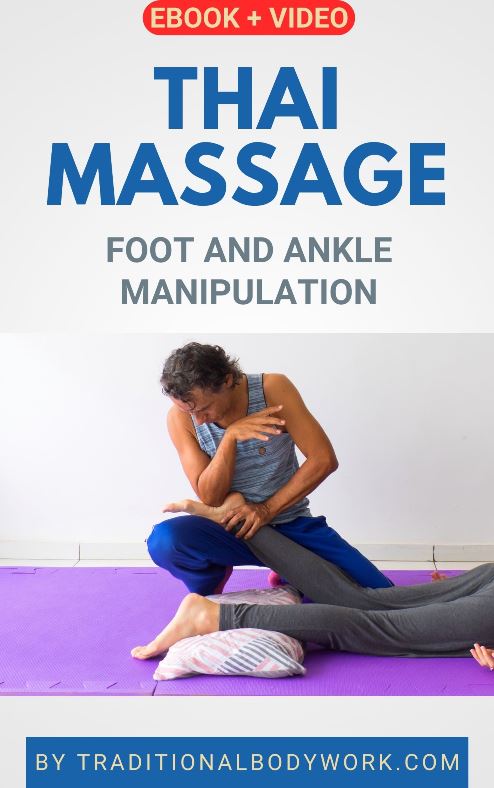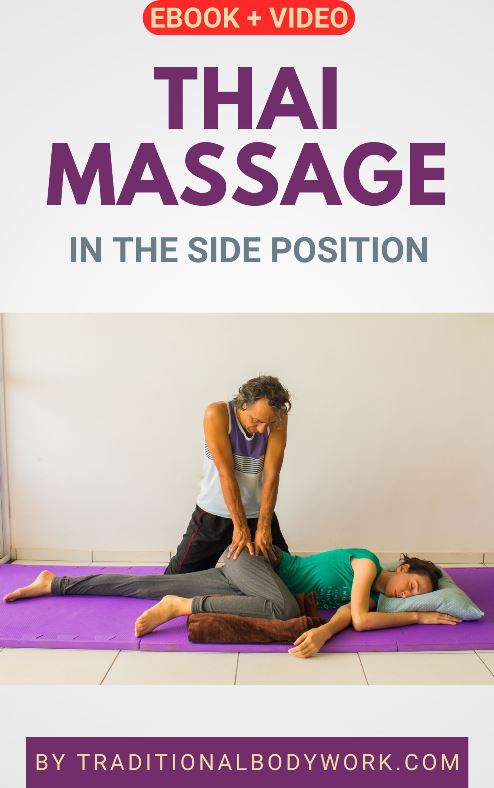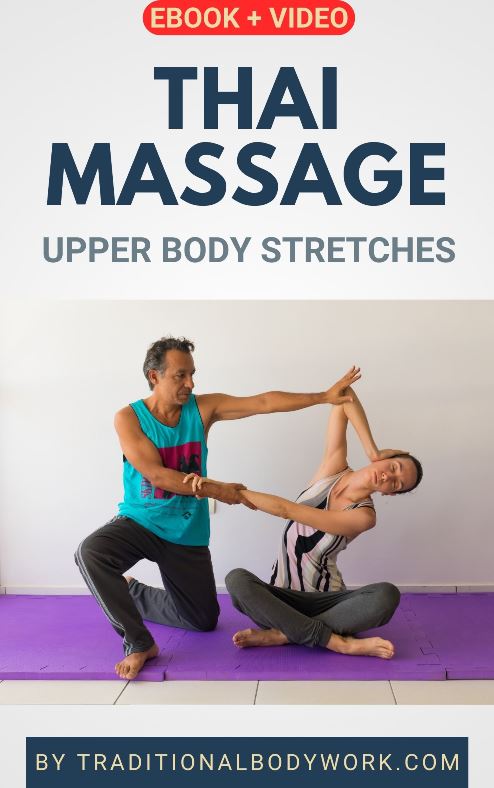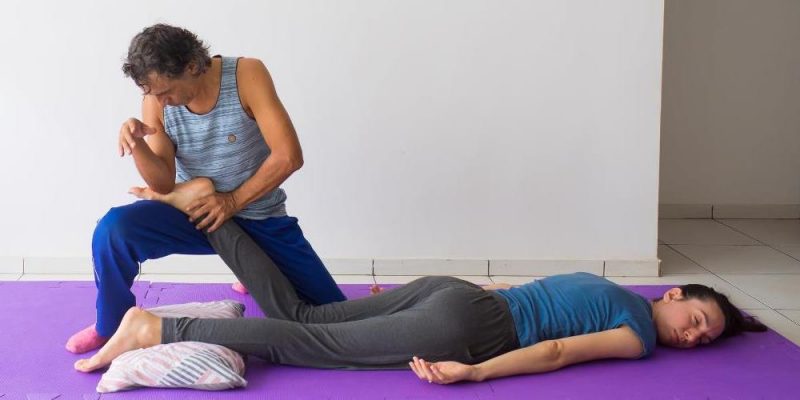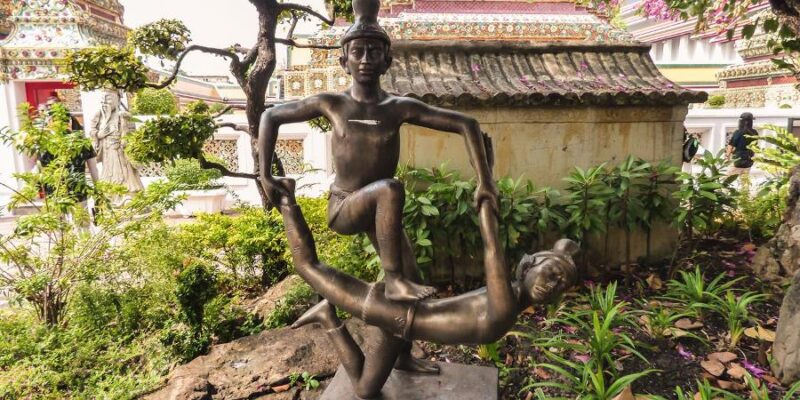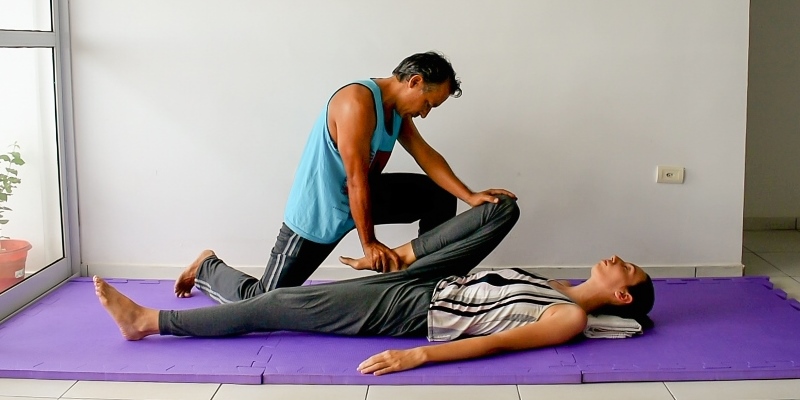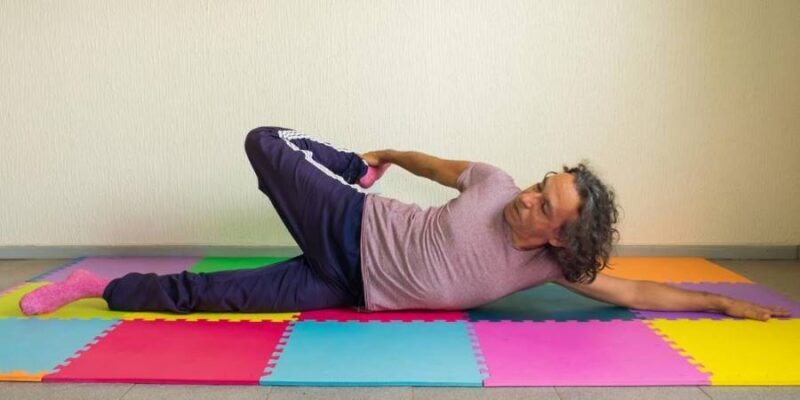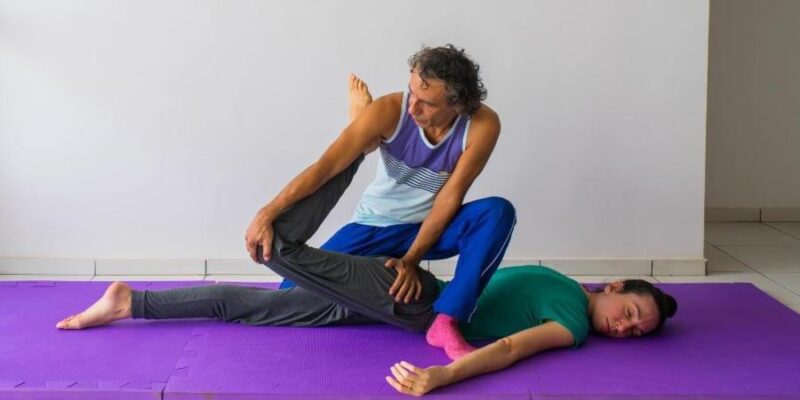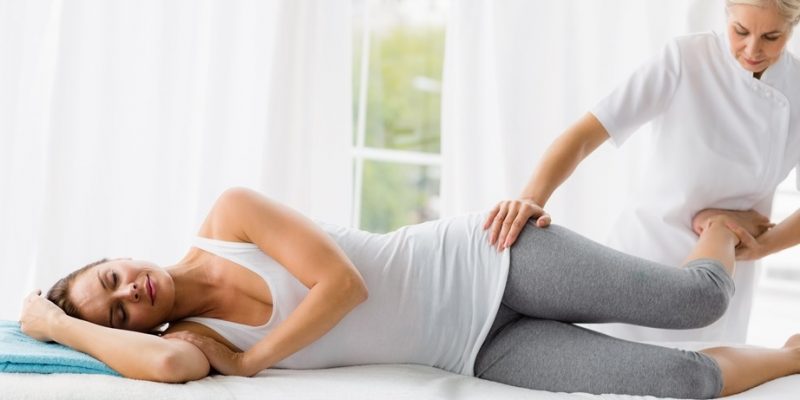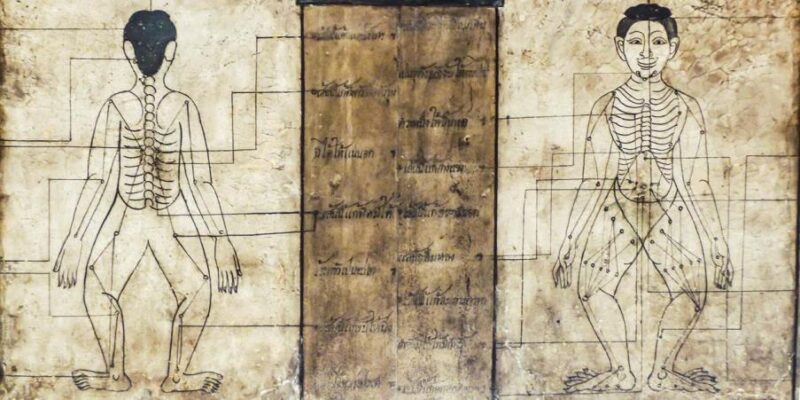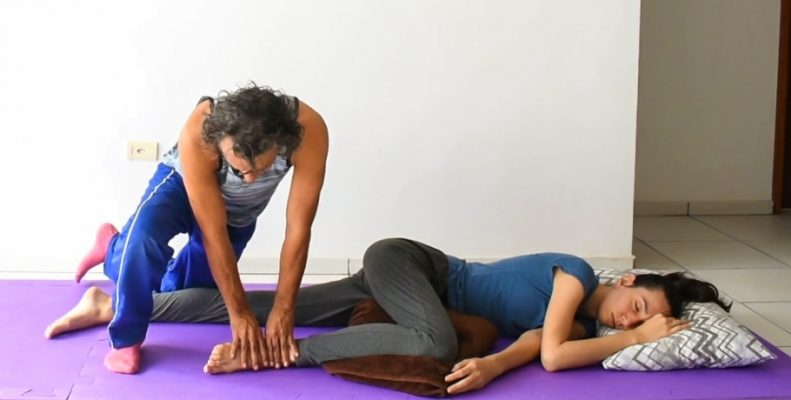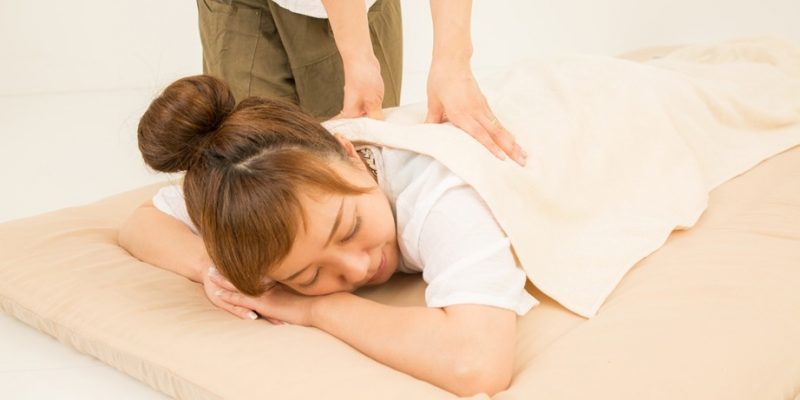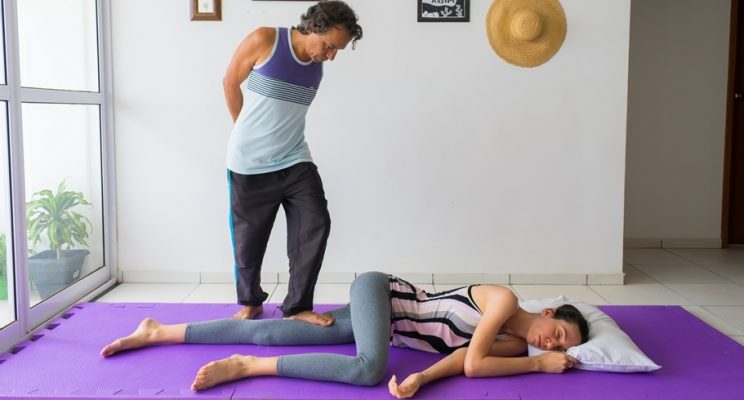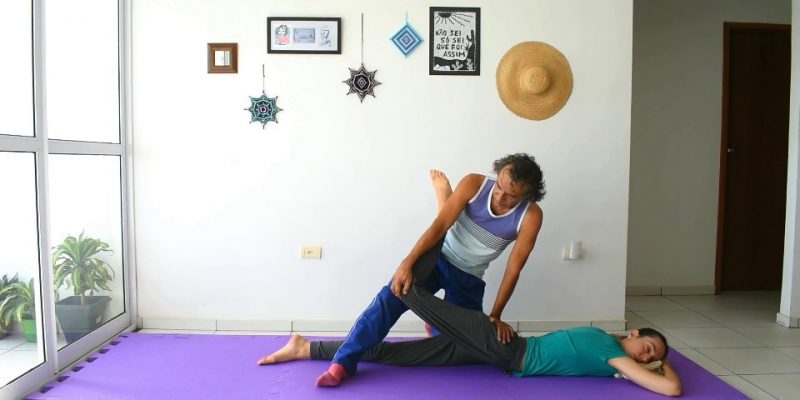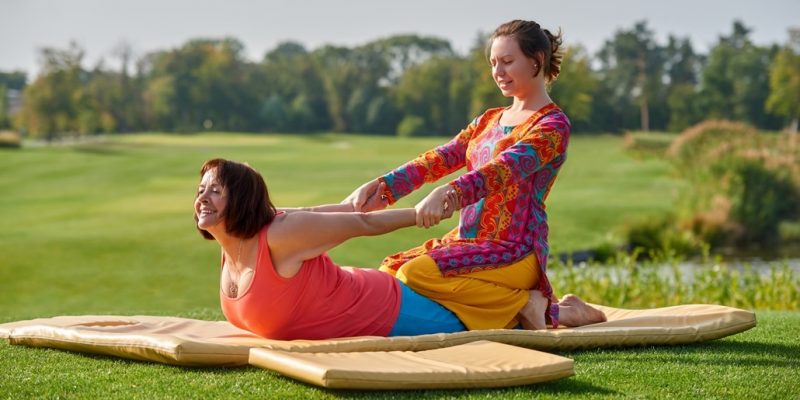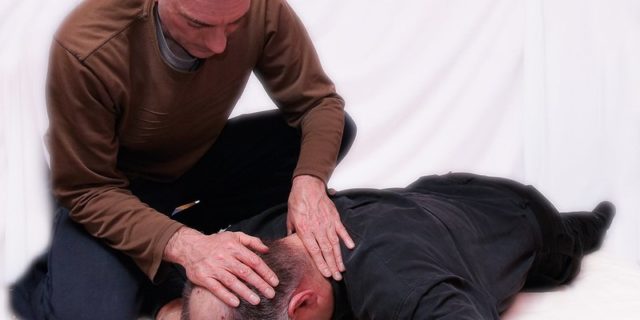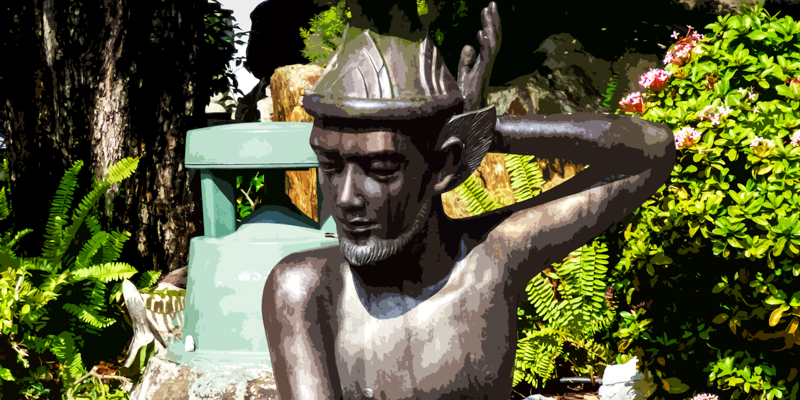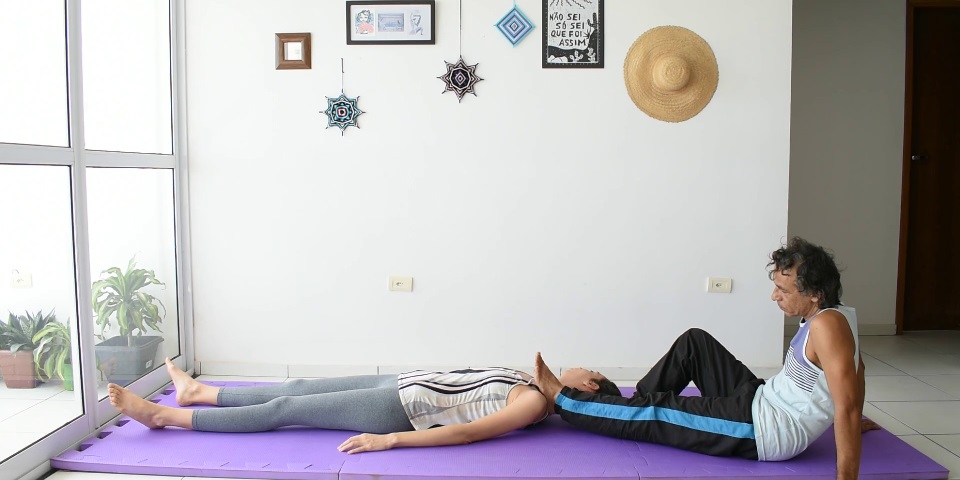
Learning hands free Thai Massage is rather sought-after because it avoids strains, discomforts, and ailments of the therapist’s hands, notably of the wrists and thumbs, but also of the shoulders. In fact, protecting the hands, fingers, and wrists can be a career-saver for massage therapists.
As it is, carrying out Thai Massage — somewhat depending on the style one practices — can be rather hands-intensive because of applying lots of hand-palm pressure and thumb acupressure (so-called thumbing) on the Sip Sen Energy Lines as an important part of a session.
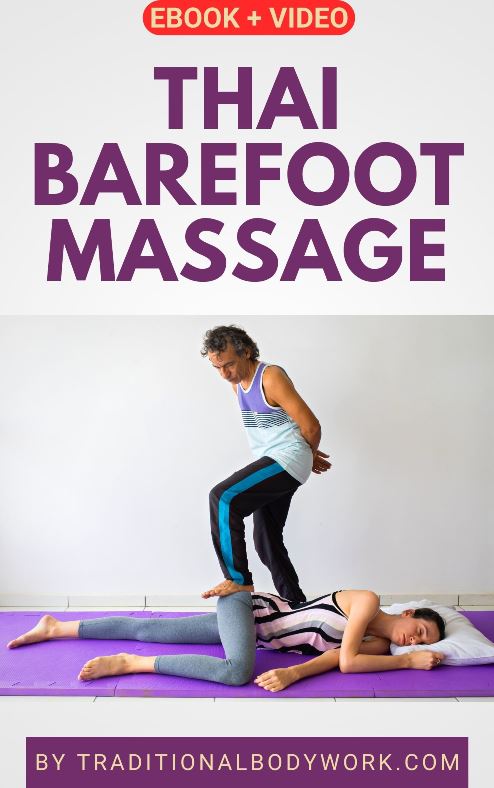
Luckily, Thai Massage can be done entirely without using the hands; one can use forearms, elbows, knees, buttocks, and the feet to carry out a treatment session. As for giving acupressure, especially the elbows and knees can be used instead of the thumbs.
Nevertheless, it will be rare to not use the hands, that is, the thumbs or hand palms at all. But then again, that’s not the real goal of hands free Thai Massage, but rather to balance out the work and avoid repetitive strains (which can cause carpal tunnel syndrome, for instance) by using a variety of body parts to massage.
Moreover, using hands-free techniques is not only done to spare the hands, but also because you can do other things with the feet, knees, elbows, and forearms, such as giving different types of pressure.
Much of hands free Thai Massage is actually done on the floor, on a mat, which is the traditional way of performing Thai Massage. This can pose a problem for masseurs who do Thai Massage on the massage table — so-called Table Thai Massage — a widespread practice in the West.
Working on a typical massage table gives little space to work with the knees or feet, and also less options to work appropriately with the elbows. Paradoxically, it’s not uncommon in Thailand to see masseurs giving Thai Massage on “the table,” for instance on the beaches, or in establishments of blind masseurs. Mind though that the massage tables used in Thailand are rather large elevated beds and mattresses, usually double the size of what we in the West consider a “massage table.”

So, with those large massage tables (or elevated beds), you can actually climb on the table together with the client and do almost the same as you would do on the floor, that is, freely use the knees, arms, elbows, and feet.
And just to avoid misunderstandings — I don’t mean to say that you can’t use hands-free Thai Massage techniques on a “normal” massage table, but you will be somewhat limited in the number of suitable techniques.
In any case, if you work on a classic massage table and want to learn doing Thai Massage as hands free as possible, you can take Thai Barefoot Massage, Table Thai Massage, or actual Hands Free Thai Massage trainings and workshops, and use only those techniques that are handy or appropriate to carry out on your own massage table.


